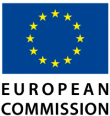Interpreter: Interoperability for grid management


Interoperable tools for efficient and effective grid planning management

| Date | October 2019 - September 2022 |
| Project's website | https://www.interpreter-h2020.eu/ |
| Leader | Circe |
| Reference | 864360 |
| Financing entity | The Interpreter project has received funding from the European Union's Horizon 2020 research and innovation program under grant agreement no. 864360
|
Context
The transition to a low-carbon economy is significantly transforming the energy system from a unidirectional, centralized, fossil-based system to a bidirectional, distributed, renewable energy-based one. In this context, distribution grid operators and transmission grid operators face more complex grid operations, including challenges such as reverse power flows, additional power flows in transmission systems, and grid stability issues. The tools available for grid management in this changing environment have often not performed well for various reasons (e.g., lack of availability of network models, data management constraints, the use of conventional approaches to application algorithms, etc.).
INTERPRETER will overcome the limitations of existing tools through a modular grid management solution consisting of a set of 10 software applications for optimal grid design, planning, operation and maintenance - with a focus on the distribution grid - that will be offered to grid operators through an interoperable open-source platform. These tools will help distribution grid operators and transmission grid managers move from a traditional grid management approach to an active system management one, taking into account the rapid deployment of distributed energy resources as well as growing environmental concerns.
INTERPRETER activities are carried out by a strong and well-balanced consortium composed of 5 research centers, 2 DSOs, 1 leading SW developer and 1 SME specialized in communication and dissemination. The project includes an ambitious validation phase, in which the solutions will be tested in 3 pilot projects in Belgium, Denmark and Spain, thus ensuring high replicability across Europe. Overall, the project aims to achieve an annual economic impact on the investment deferral pilot projects of €36.6 million through asset remuneration, €28.15 million through the amortization of capacity assets, as well as a recovery of €665,576 through the detection of non-technical losses, and €11,422 through the reduction of outage frequency.
Objetives
— To complement the existing information that network operators have about their networks with a tool capable of generating new network models from different available sources.
— To increase the efficiency of grid management - including both operation and maintenance - through a set of innovative, interoperable, and modular software applications that make use of new grid models.
— To improve sustainability and reduce costs in power grid design and planning through a set of innovative, interoperable, and modular software applications that utilize the new grid models.
— To ensure the seamless and flexible integration of INTERPRETER tools into network operators' existing systems through an open-source platform (FUSE) as a central part of a complete hybrid, multi-cloud solution.
— To test and validate INTERPRETER solutions using a set of representative use cases defined in collaboration with two different European DSOs from Spain and Belgium.
— To promote the adoption of INTERPRETER's modular approach and global solution through the intensive dissemination and knowledge transfer of key project results to stakeholders.
— To test and validate INTERPRETER solutions using a set of representative use cases defined in collaboration with two different European DSOs from Spain and Belgium.
— To discuss and provide recommendations and perspectives on various project areas - interoperability, cybersecurity, data protection - to key stakeholders, such as BRIDGE.
Cuerva's Role
Cuerva, as a DSO (Distribution System Operator), will lead the Spanish demo site to validate the results in its Living Lab.
It will also act as WP7 coordinator, focused on the demonstration of the activities carried out in the project, and will act as a technology prescriber of the different tools and algorithms developed by Interpreter.
Click here to download the online version of the project brochure.



.webp)

.webp)